Share
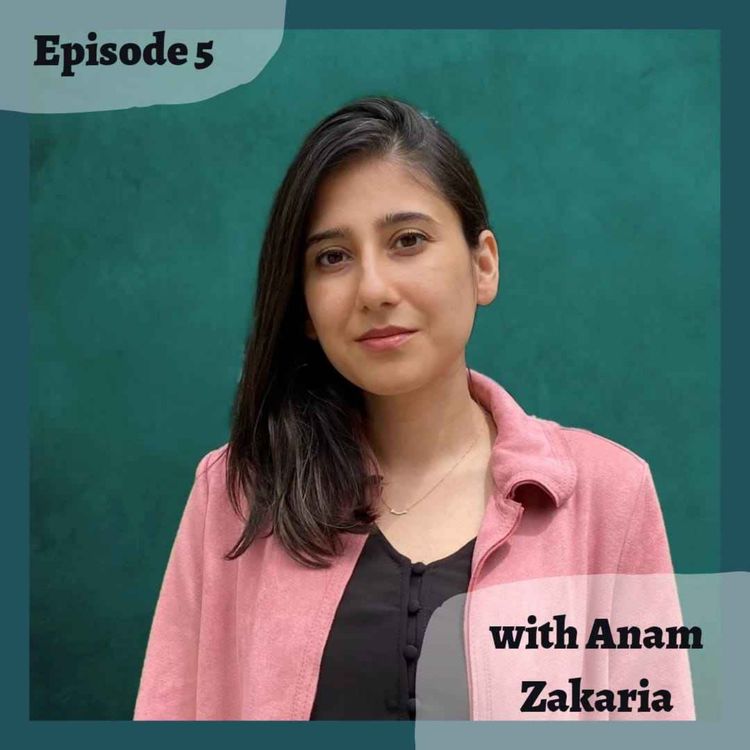
More Than A Statistic
Combating state narratives about partition and 1971 through oral histories with Anam Zakaria
Season 1, Ep. 5
•
The Partition of the subcontinent resulted in one of the bloodiest partitions in history and caused the rapid displacement of millions of people overnight. In this episode, Anam shares her personal journey of learning more about 1947 and 1971, the importance of collecting oral histories to combat state narratives and what she hopes her books can achieve.
To learn more about Anam and her work visit, https://www.anamzakaria.com/
To learn more about Anam's books, visit:
Footprints of Partition: Narratives of Four Generations of Pakistanis and Indians
1971: A People's History from Bangladesh, Pakistan and India
Between the Great Divide: A Journey into Pakistan-Administered Kashmir
More episodes
View all episodes
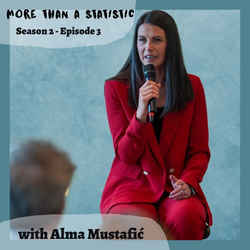
3. Surviving the Srebrenica Genocide: Holding the Dutch state responsible and raising awareness about genocide through theatre with Alma Mustafić.
48:22||Season 2, Ep. 3In 1995, 8,372 Muslim men and boys were systematically murdered in the Srebrenica Genocide by Serb nationalist forces in front of the UN Dutchbat Peacekeepers. 29 years later, the remains of the victims are still being found amid growing denial of the genocide by Serb nationalists. In this episode, Alma speaks about her experiences of surviving genocide, holding the Dutch state responsible for murder, raising awareness about the Bosnian Genocide through theatre, and what she believes we can all learn from the Srebrenica Genocide. If you would like to read our previous interview with Alma, please follow this link.If you would like to contact Alma or learn more about her work, please follow the links below:Twitter , LinkedInPicture credit: Tom van den Dool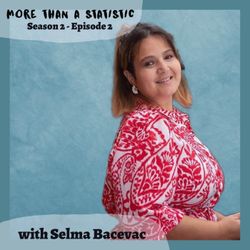
2. Discussing the mental health impacts of surviving displacement, war, and genocide with Selma Bacevac.
01:08:40||Season 2, Ep. 2When people are displaced, the physical needs of providing food, water and shelter are prioritised, but the effects of war and forced displacement go beyond just physical impacts and needs. The mental health needs of people who have been displaced often go unmet for reasons ranging from stigma to lack of resources. In this episode, Selma shares her journey from being made a refugee because of the Bosnian Genocide to finding her way to becoming a psychotherapist to guide others through their trauma.If you want to learn more about Selma's work, follow her on Instagram!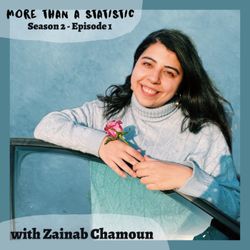
1. Living under the shadow of Israeli aggression: Discussing the realities of living in South Lebanon with Zainab Chamoun.
41:14||Season 2, Ep. 1South Lebanon has been misrepresented by portraying the region as having a ‘culture of death’. In this episode, Zainab speaks about her experiences of living through the 2006 Lebanon War against the colonial settler state of Israel and the current situation in South Lebanon in light of the ongoing Palestinian Genocide.You can read Zainab’s article in Missing Perspectives here: On ‘neighbouring’ the oppressor: living under the constant threat of warIf you would like to keep up with Zainab, her projects and life in South Lebanon, follow her on: InstagramTwitter LinkedInIf you would like to support content creators from South Lebanon by amplifying their voices, please follow:Eye on South LebanonHasanSara RammalHasan Atieh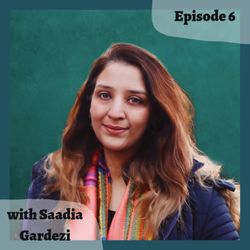
6. How can VR technology help preserve memory? Everything you need to know about Project Dastaan and their work to raise awareness about the 1947 Partition, with Saadia Gardezi.
23:47||Season 1, Ep. 6For many, the mention of the Partition of Pakistan and India is overshadowed by politically charged narratives of 1947, very rarely are survivors of Partition provided with platforms to share their stories and experiences. In this episode, Saadia speaks about Project Dastaan, a peace-building initiative which examines the human impact of global migration through the lens of the largest forced migration in recorded history, the 1947 Partition of India and Pakistan.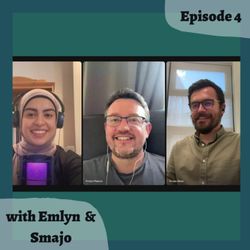
4. Using storytelling to amplify the voices of refugees and raise awareness about the Bosnian Genocide with Emlyn Pearce and Smajo Bešo
01:30:08||Season 1, Ep. 4Storytelling is an art that allows us to see the world through someone else's eyes and acts as a record to prevent historical revisionism. In this episode, we're joined by Smajo and Emlyn to talk about how storytelling can rehumanise the rhetoric surrounding refugees and raise awareness about the Bosnian Genocide by placing the narrative where it belongs, with the people themselves.You can learn more about Smajo's work on Twitter and the Bosnian Genocide Education TrustYou can learn more about Emlyn's work on TikTok.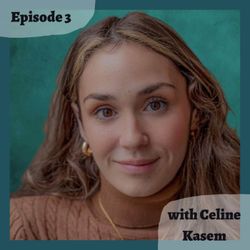
3. Highlighting the humanitarian impacts of the Syrian Crisis with Celine Kasem
40:27||Season 1, Ep. 312 years have passed since the beginning of the Syrian crisis, during which millions of people have been displaced. In this episode, Celine speaks about the ongoing humanitarian crisis, the politicisation of aid and the treatment of Syrian refugees. To follow Celine's work:Twitter, InstagramSyrian Emergency Task Force To find out more about the links mentioned during this podcast:Syria Watch App: Apple Store, Google Play For Sama Mazen Al-Hamada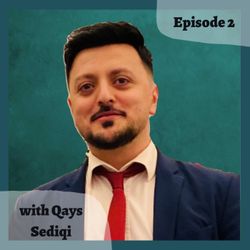
2. Discussing the Illegal Migration Bill and debunking myths about seeking asylum with Qays Sediqi
01:06:06||Season 1, Ep. 2The rhetoric around seeking asylum in the UK has steadily gotten worse since 2015. Most recently, this has culminated in Suella Braverman’s brainchild – the Illegal Migration Bill. In this episode, Qays shares how his personal journey as a former refugee led him to become a human rights lawyer and commonly held myths around seeking asylum.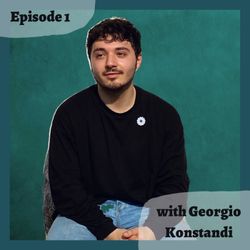
1. Raising awareness about the Bosnian Genocide with Georgio Konstandi
56:11||Season 1, Ep. 1Our first episode introduces Georgio Konstandi, a Bosnian Genocide researcher. The Bosnian Genocide lasted from 1992-1995 and saw the worst atrocities committed in Europe since WW2. In this episode, Georgio speaks about his projects dedicated to raising awareness about the Bosnian Genocide by working with survivors. We also speak about the dehumanising language used to justify the genocide and why it continues to be a lesson for all of us about what can happen when discrimination and hate speech goes unchecked. Find out more about Georgio’s projects:https://twitter.com/georgiokonhttps://twitter.com/dearsrebrenicahttps://the-scroll.co.ukTo follow the work of other organisations mentioned in this podcast:https://srebrenica.org.uk https://www.bget-uk.org